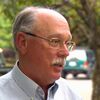Right-of-way Management
| Transportation | ||||||
|---|---|---|---|---|---|---|

| ||||||
| Sectors | Transportation | |||||
| Contact | Wilfred Pinfold | |||||
| Topics |
| |||||
Activities
| ||||||
- Authors



 [[File:|x100px|link=Tim Smith]]
[[File:|x100px|link=Tim Smith]]






{{{summary}}}
Urban Speed electric vehicles can interact with the current built environment in new ways. For example, rather than consider curb pick-up and drop-off these vehicles can come into building spaces without polluting the environment. Picking up directly from transit stops and dropping off in schools, hospitals, universities and offices protects passengers from the elements in ways that have not been possible before. Covered transfer facilitates better protection for patients and people with disabilities.
Similarly last mile freight carried by vehicles that can come into warehouses and factories offers many benefits including clearing the streets. These driverless delivery vehicles and small autonomous drones can ferry groceries and other packages to customer’s front doors on demand for a low cost. Building hub-and-spoke delivery systems, optimizing freight routes, and scheduling deliveries to minimize congestion can significantly reduce costs and improve convenience. Reducing dwell and idle time or getting vehicles off the street completely during delivery requires coordination with public and private concerns, zoning officials, parking authorities, freight services, and building/site managers.
One advantage of autonomous urban speed electric vehicles is that there is no reduction in efficiency, increase in cost or increase in pollution for a larger number of small vehicles. The vehicle can therefore be sized for the appropriate purpose. For example picking people up or dropping packages
at home can be done with a small vehicle whereas taking people or deliveries to a work campus like Intel or Nike can be done with a bus or delivery truck.
